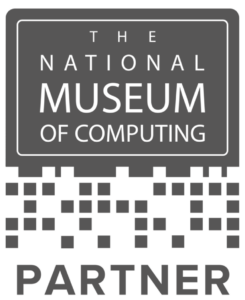We now hear regularly that we are now in the ‘retail’ phase of IT evolution (see The Quantum Age of IT ‘Charles Araujo). Essentially the idea is that IT has moved on from early entrepreneur and engineering-dominated stages, to what is now the commercial norm of supply chain and services.
Using e.g. railways as an example – most railway companies now run using a relatively small minority of engineers or technical experts (of course they do have them), but most jobs in that industry are now related to customer service, sales and marketing, contract management, finance, ticketing etc. Clearly there can be parallels drawn with IT which is now becoming more concerned with customer experience, business services and commercial management.
Many bloggers now identify this new phase and have suggested the face of IT to come – sample role/skills required:
- Specialist technical skills
- Consultancy and project management
- Organisational change and people development
- Key business knowledge/skills
- Supplier management
- Contract negotiation
- Supply and demand management
- Marketing and communications
- Relationship management
- Customer support
For many the need for IT departments is diminishing – as more technology is delivered as a commodity by outsourced companies and via cloud models – so also bought directly by business people rather than by internal IT people. For some this is a crisis and wake up calls for IT people to be more aware of market development and also to embrace the need to be more customer-focussed and open to new ways of working and new commercial models.
This argument has raged for a couple of years now and was heightened when Gartner announced recently that Marketing departments would spend more and be in control of more IT budget than IT departments by 2015 – although the veracity of this and some of the assumptions and criteria used have been challenged.
Another angle and shift in focus is the need for IT people to move away from thinking about how we ‘work in IT’ – i.e. rather than work for the business/organisation that pays our salaries.
Certainly there is an increased need for non-IT skills such as commercial management, contract negotiation, procurement, customer management and marketing – all of which are already key elements in IT management, although with little consistency or maturity in delivery as many people who work in the IT industry still don’t appreciate or value these skills – they are tech people…
Overall these arguments and hypes have created a bit of an identity crisis in the industry around the future of IT work and IT organisations, although to many people working at the front line nothing much has visibly changed.
What is certainly true is that the IT industry constantly continues to change not just in technology, but also in terms of commercial focus, business models and practices. Disruption is the norm and an expected feature of the market and this applies to a much wider set of criteria than just technology.
There is more focus on the customer experience and a need for more collaborative working and ‘supply chain’ thinking around the delivery of services. People working in IT need to be ready to embrace change and to look forward to how their current roles and capabilities might need to be developed in order to stay employable in future – and certainly the future will involve more non-IT skills as a requirement.
Overall we seem to live in an industry that is running at variable speeds – 2-speed, bi-modal, whatever you want to call it. The challenge is for CIOs and IT leaders to bring these variable speeds together and ensure that IT keeps up with the times and also ensures that basic functions and capabilities are delivered. CIOs must waken up to this and meet the challenge and enthuse and drive their people to work towards meeting it.
The real challenge is finding and getting people who have the combination of technical and new business skills to deliver the ‘supply chain’ of IT services that organisations need.
What do you think? Is there too much scaremongering or are we really in danger of missing out and losing many IT organisations?

Barclay Rae
Barclay Rae has extensive experience as a consultant, analyst and subject matter expert in IT Service Management. He is the Lead Editor of ITIL 4 Create Deliver Support (CDS) Managing Professional guide, a member of the ITIL 4 Architect team and a co-author of ITIL Practitioner.
He also has considerable business and management experience in the industry, both as a consultancy vendor and also working with industry bodies and vendors such as SDI, AXELOS, APMG, and Axios. He brings industry and subject knowledge to ITSMF UK's strategic direction, as well as practical experience and commercial skills in running a small business organisation.


